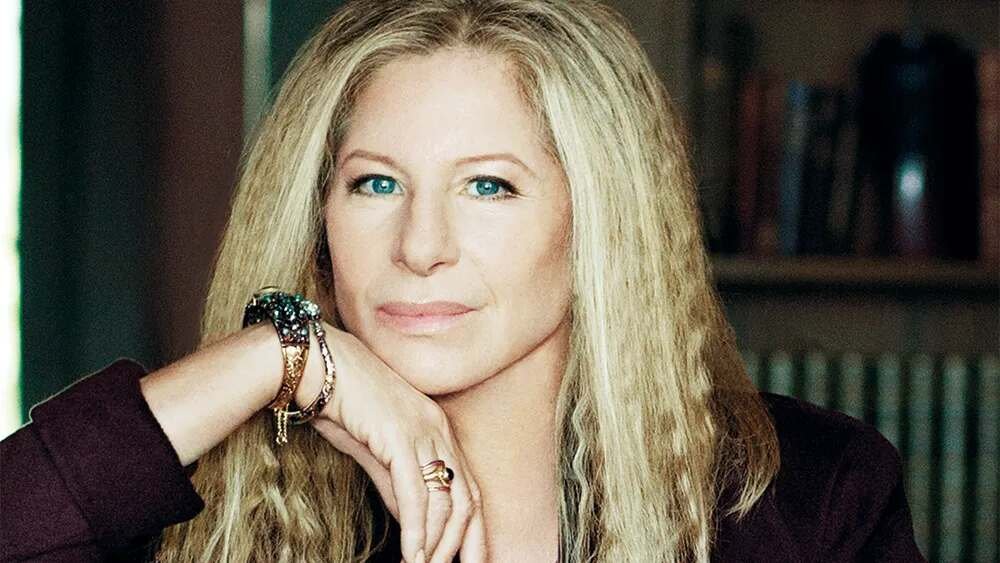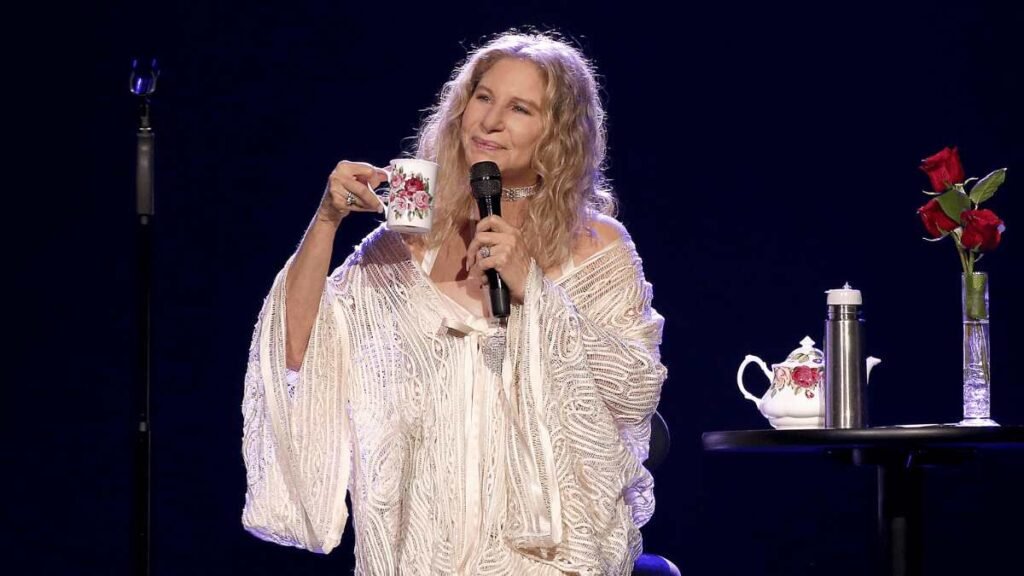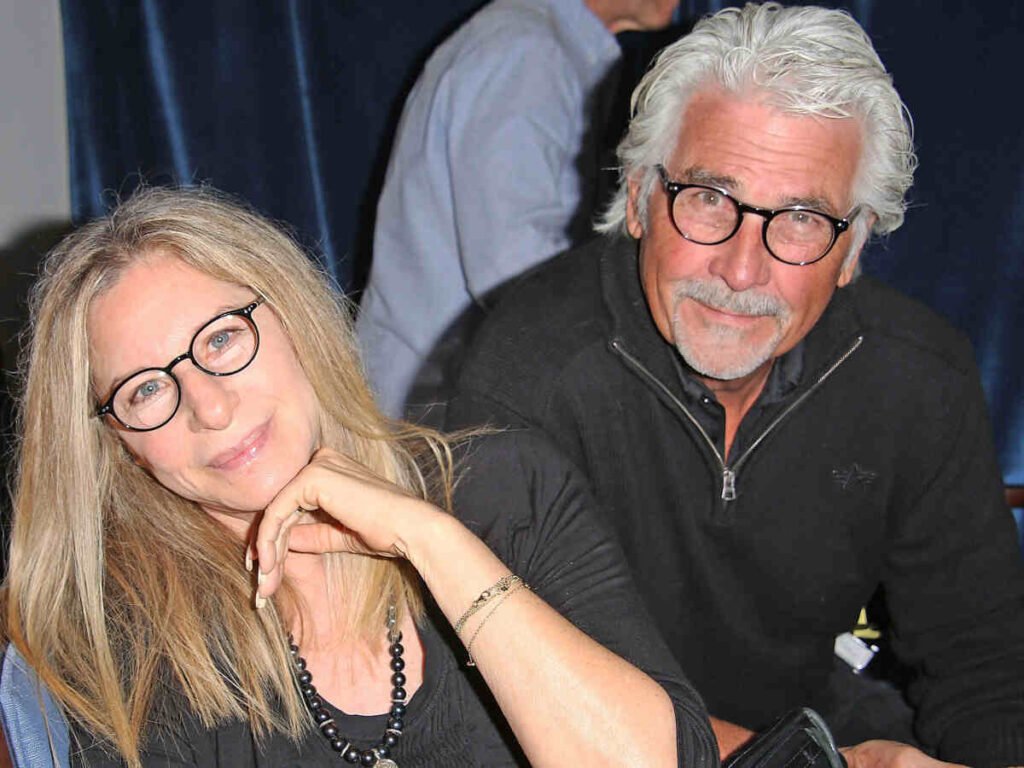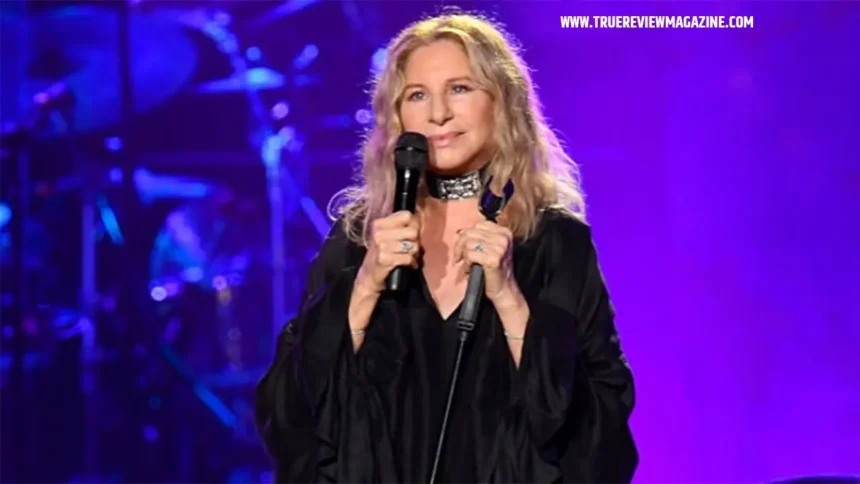Barbra Streisand recently shared insights into her early experiences, offering a glimpse into her past, including a noteworthy encounter with Sydney Chaplin that significantly impacted her stage career. This revelation comes as she prepares to release her memoir, “My Name Is Barbra.”
In the interview with the BBC, Streisand, now 81, discussed her complex relationship with Sydney Chaplin during their joint performance in Funny Girl on Broadway in the 1960s.
“I prefer not to dwell on it,” Streisand expressed. “It was an unusual situation where someone developed feelings for me. When I expressed my lack of interest, it resulted in a hurtful response.”
Streisand detailed, “He resorted to muttering derogatory comments while I was on stage – using profanities and curses. He also avoided making eye contact, which is crucial for actors in a scene.”

This unsettling experience, she revealed, left her feeling flustered and ultimately contributed to her decision to step away from live performances. Throughout her career, Streisand also faced challenges from other male colleagues.
These challenges included instances such as Walter Matthau publicly making disparaging remarks about her on the set of Hello, Dolly! and Frank Pierson openly criticizing her during the 1976 version of A Star is Born, which he directed, characterizing her as demanding and frequently requesting more close-up shots.
In her memoir, Streisand acknowledges the men who were charmed by her, including Omar Sharif, Prince Charles (now King Charles), and Marlon Brando. She also addresses the criticism and praise she received concerning her appearance during her early career.
Despite her numerous achievements, including selling 150 million records and winning multiple awards, Streisand admitted that she often finds it challenging to derive complete contentment when reflecting on her life.
“I have a strong desire to embrace life,” she affirmed. “I want to hop into my husband James Brolin’s truck and embark on exploratory adventures, preferably with our children nearby. My life hasn’t been as enjoyable as I’d like, and I yearn for more fun.”
Streisand also spoke about the loss of her father to a cerebral hemorrhage when she was just 15 months old, which left her family in a state of financial hardship. Her mother’s new husband, a used-car salesman, was distant and unkind.
“I can’t recall him ever engaging in conversation with me or showing any interest,” she recollected. “He never acknowledged my aspiration to become an actress; in fact, he discouraged me.”
At the age of 16, Streisand left home and took on a clerk job while working as a theater usher during the weekends to stay updated on the latest Broadway shows.

“I earned around $4.50 if I remember correctly, but I always kept my face hidden because I had a vision that I would someday become famous,” she shared. “Isn’t it ironic? I didn’t want people to recognize me on the screen and realize that I had once shown them to their seats.”
Streisand’s dreams began to take shape in 1960 when she entered a talent competition, offering a $50 prize and dinner. Winning the competition marked the beginning of her journey, with one audience member even remarking, “Little girl, I see dollar signs all over you.”
This victory led to Streisand securing gigs in venues around Greenwich Village in New York, where she quickly started receiving standing ovations. However, her real breakthrough came with her role in the Broadway production and subsequent film adaptation of Funny Girl, earning her an Academy Award.
Following this pivotal moment, Streisand’s career took off as she starred in various films and achieved great success in the music industry. Her achievements include hits like “Woman in Love,” “Evergreen,” and “No More Tears (Enough Is Enough),” making her one of the top-selling female artists of all time.
In 1983, Streisand made her directorial debut with Yentl, becoming the first woman to serve as the writer, producer, director, and lead actress in a Hollywood film.
Reflecting on her experiences during a film shoot in England, Streisand noted that she found the country to be less sexist than the United States. She remarked, “With a queen and Margaret Thatcher as prime minister, there was less gender bias. Regrettably, in America, it was a different story, with people appearing distant and aloof.”

While her memoir aims to debunk the diva image often associated with her, Streisand also shares moments that reflect the perks of fame, such as the time she reached out to Apple CEO Tim Cook to address Siri’s mispronunciation of her name.
“I spell my name without a ‘Z’,” she pointed out. “It’s Strei-sand, like sand on the beach. It’s as simple as that. Tim Cook was incredibly gracious and had Siri correct the pronunciation. I guess that’s one of the privileges of fame!”
Click here: https://truereviewmagazine.com/










